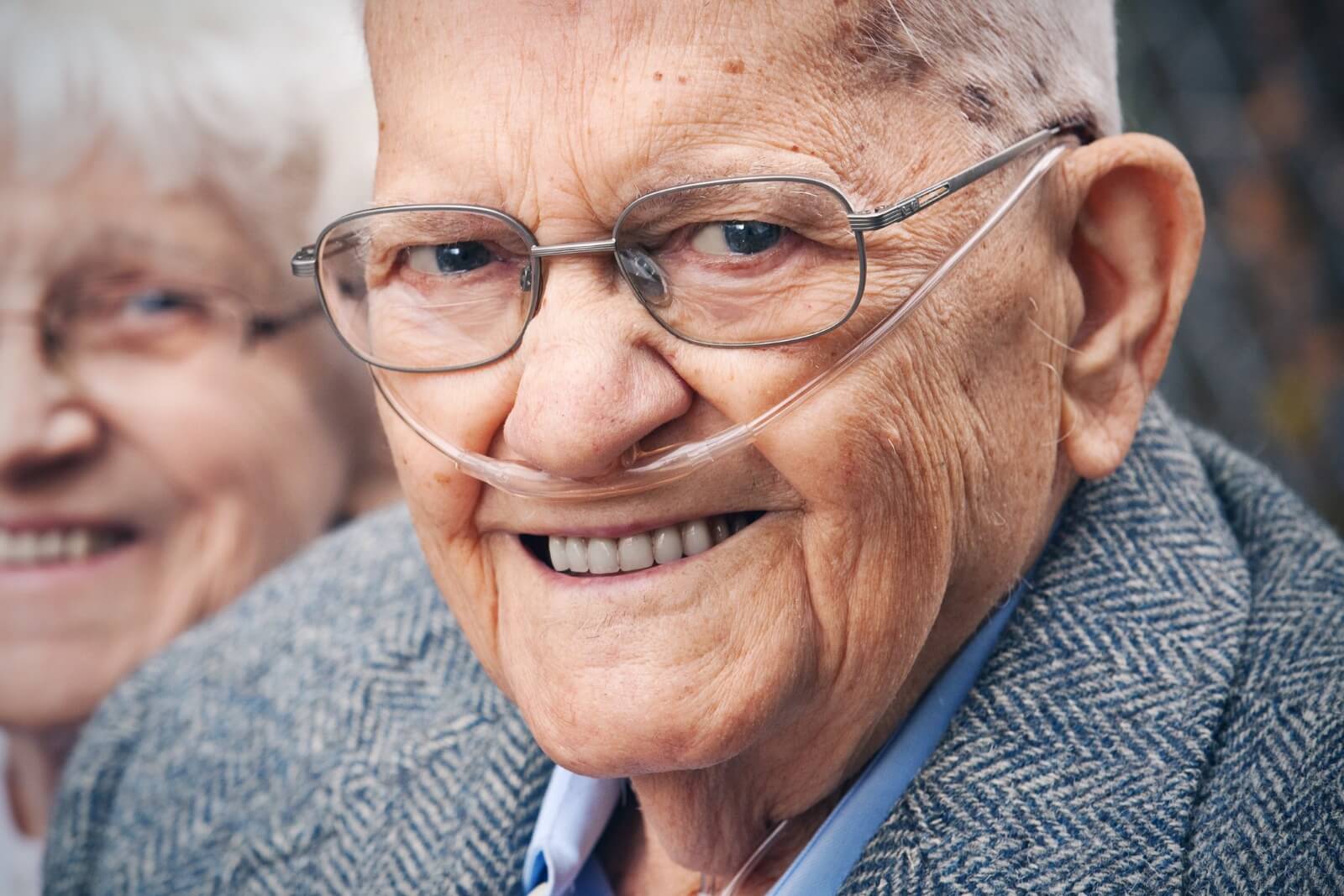
Every organ of the human body requires a certain amount of oxygen to work properly. The lungs take oxygen from the air and supply it to the different organs through the bloodstream. However, in individuals with certain health conditions, this process is disrupted. As a result, the oxygen levels in the blood drop, and the organs fail to receive an adequate amount of oxygen. In such situations, extra or supplemental oxygen must be given to fulfill the oxygen requirements of the body. This type of medical treatment is known as oxygen therapy. Oxygen therapy can be provided via a number of medical devices, including oxygen concentrators.
An oxygen concentrator is a device that supplies a higher concentration of pure oxygen to the lungs. In this article, we will discuss some of the common health conditions in older adults that require the use of oxygen concentrators. We will also answer some of the commonly asked questions about these devices.
Common health conditions for which oxygen concentrators can be helpful
Older adults can develop a range of medical conditions that can cause the oxygen levels in their blood to drop, known as hypoxemia. Hypoxemia can cause damage to the different organs of the body and affect their function. Below are some of these medical conditions:
- Chronic obstructive pulmonary disease (COPD): COPD is a long-term condition of the lungs characterized by damage to the airways and air sacs. This leads to airflow obstruction, which causes an inadequate amount of oxygen to pass into the bloodstream.
- Asthma: Asthma is an ongoing lung condition in which the airways become swollen, irritated, and narrowed. This makes it difficult to breathe and prevents enough oxygen from reaching the organs.
- Interstitial lung disease: This group of diseases causes progressive scarring (also known as fibrosis) of the lung tissue. This scarring makes it difficult for oxygen to move from the lungs into the bloodstream.
- Emphysema: This chronic lung disease causes damage to the air sacs in the lungs. This damage lowers oxygen levels in the blood as less oxygen is absorbed into the bloodstream.
- Lung cancer: Lung cancer can grow into or press against the lung airways. This narrows or blocks the airways and prevents the lungs from fully expanding. As a result, enough air cannot get in or out of the body.
- Heart failure: Heart failure causes the heart to pump blood less well, which in turn means the organs may not receive enough oxygen-rich blood.
- Cor pulmonale: This condition occurs when long-term lung disease leads to increased blood pressure in the lungs’ arteries. This, in turn, damages the right side of the heart, which then fails to pump enough oxygen-rich blood around the body.
Oxygen therapy is usually required in severe or advanced stages of these health conditions. As the disease becomes more serious, the symptoms become more prominent. Shortness of breath is often the first indication that you may need supplemental oxygen. Other signs of low blood oxygen levels may include:
- Rapid breathing.
- Rapid heart rate.
- Chest pain.
- Coughing and wheezing.
- Dizziness.
- Fatigue.
- Bluish discoloration of skin and nails.
- Headache.
- Confusion.
- Difficulty sleeping.
If you have signs or symptoms that suggest that your blood oxygen levels are low, your doctor will confirm it by taking certain measurements, such as oxygen saturation and arterial oxygen pressure. Oxygen therapy is usually recommended when the oxygen saturation drops below 89% or the arterial oxygen pressure is under 60 mmHg.
How can an oxygen concentrator help you?
The air we breathe consists of around 78% nitrogen, 21% oxygen, and 1% other gases. An oxygen concentrator extracts room air and filters out dust, bacteria, and other small particles. It also removes nitrogen from the extracted air, leaving behind air that is more than 90% oxygen. Inhaling a higher concentration of oxygen can increase oxygen levels in the blood. This helps the body’s different organs, such as the brain, heart, and kidneys, get the oxygen they require to function properly.
Can it cure any health conditions?
An oxygen concentrator cannot cure any health conditions; however, it can have life-changing benefits for elderly patients with low oxygen levels. The regular use of an oxygen concentrator, as prescribed by your doctor, can help you breathe better and relieve your symptoms. You may feel less short of breath and less tired. Moreover, you may be able to sleep better and be more active. Oxygen therapy may also decrease the risk of disease complications, improve your quality of life, and help you live longer.
How long do you need to use one?
How long you will need to use an oxygen concentrator depends on your individual needs, symptoms, disease severity, and overall health. For instance, some patients may need to use an oxygen concentrator only for a short period. Once their blood oxygen levels return to normal or the underlying disease is controlled, they can stop using the oxygen concentrator. However, in ongoing conditions, such as COPD, oxygen therapy may be needed for a long period. Additionally, some patients may only need supplemental oxygen during exercise or sleep, while others may need it on a continuous basis.
Your health care provider will perform a number of tests and closely monitor your symptoms to determine the amount of time for which you should use an oxygen concentrator.
Do you need a doctor’s prescription to use an oxygen concentrator?
Medical-grade oxygen is considered a prescription drug by the U.S. Food and Drug Administration (FDA), and therefore, a doctor’s prescription is required for oxygen therapy. Your prescription will include the exact amount and duration of oxygen use. This ensures that your body receives the right amount of safe and fresh oxygen, as inhaling too little or too much oxygen can be dangerous and lead to serious side effects.
It is important to note that there are several over-the-counter (OTC) oxygen concentrators on the market. These devices are often more affordable and can be easily bought without a doctor’s prescription. However, the American Lung Association warns against the use of such oxygen concentrators, as they are unlikely to provide the right amount of oxygen to your body.
Oxygen concentrators are a safe and effective way of delivering supplemental oxygen. If you have any of the abovementioned health conditions or experience any signs of low blood oxygen levels, it is important that you talk to your doctor. The regular use of an oxygen concentrator as prescribed by your doctor can make a significant difference in your day-to-day life.








